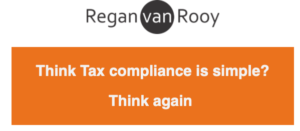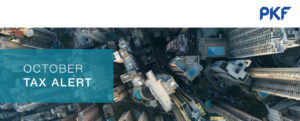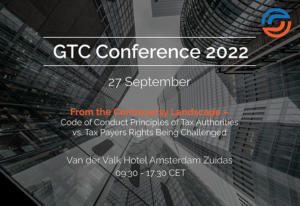Note by Prof. Dr. Daniel N. Erasmus: We have experience in representing clients at these inquiries. The SARS powers are extensive. It is very difficult to challenge the access by SARS to this type of inquiry once they present prima facie evidence that falls into the provisions of sections 51-58 of the TAA. What is important is the commencement of an audit. Make sure the audit is valid, and SARS have fully complied with sections 40-42 of the TAA. What is the purpose and scope of the audit? Are they playing open cards with you? Are you being fully compliant within the boundaries of the investigative provisions? Did you get a comprehensive letter of findings to explain their factual findings and supporting law?
If this process is properly handled, the necessity for SARS to invoke their inquiry powers may be limited. You effectively can remain in control. If they fail to follow the section 40-42 process properly, we have in 2 cases had the audit/assessments set aside in court, without any further investigation being conducted.
Once an inquiry is set, preparation is of key importance. You do not want witnesses giving evidence without being properly prepared. SARS rely on the ability to cross-examine and interrogate witnesses using skilled Senior Counsel to do so. Strong and knowledgeable legal representation is essential before and during the inquiry phase.
For more information/advice, contact daniel@taxriskmanagement.com
Article by: Hogan Lovells – Natalie Napier and Keshen Govindsamy
Taxpayers will always seek to mitigate their tax liability, while the South African Revenue Service (SARS) endeavours to extract the maximum amount of tax. This uneasy relationship between SARS and taxpayers is further compounded by lack of protection afforded to the taxpayer, and the far-reaching powers afforded to SARS. Although a bill of rights for taxpayers has been proposed by the Davis Tax Committee, this still has to be implemented. In the meantime, taxpayers should be aware of the far-reaching powers of SARS.
On 24 May 2018, the Gauteng High Court handed down a judgment in a matter between SARS and, among others, Bravura Equity Services (Pty) Ltd (Bravura), which further swung the pendulum in favour of SARS.
An application was brought by SARS, requesting an order for an inquiry to be conducted in terms of section 50, read together with sections 51 to 58 (the Relevant Provisions) of the Tax Administration Act 28 of 2011 (TAA). The Relevant Provisions of the TAA allow for SARS to obtain authorisation from a judge for an inquiry to be conducted into a taxpayer’s affairs where:
- a judge has reasonable grounds to believe that a taxpayer has –
- failed to comply with their tax obligations;
- committed a tax offence; or
- disposed of, removed or concealed assets which may satisfy an outstanding tax debt; and (the Section 51 Activities)
- relevant material is likely to be revealed during the inquiry that may provide proof of the failure to comply, commission of the offence, or of the disposal, removal or concealment of the assets.
SARS brought the application subsequent to investigations it had already conducted into the Bravura group. According to SARS, their investigations revealed that the Bravura group has “since inception been devoted almost exclusively to designing, marketing, selling and implementing tax avoidance schemes to its clients”.
Bravura denied these submissions and stated that their structures and advice is purely commercially driven, and that tax advice only constituted an ancillary part of their advice. Bravura submitted that all of their structures were set up to achieve commercial solutions for its clients.
Accordingly, the court had to accordingly determine how the Relevant Provisions were to be applied in deciding whether the order for the inquiry to be conducted into Bravura’s affairs was to be granted. The court noted in this regard that there is a “dearth of authority” on how the Relevant Provisions are to be interpreted and further that neither party could even refer the court to any precedent dealing with the interpretation of the Relevant Provisions.
The court accordingly tested each of the requirements of the Relevant Provisions in light of the submissions made by each party.
SARS submitted that the requirement of “reasonable grounds to believe” places a lighter burden on SARS than if SARS had to actually satisfy the court on Bravura’s non-compliance or that they had actually committed a tax offence. SARS further stated that the Relevant Provisions do not constitute a hearing to determine the tax liability of Bravura, but rather, it operates as an investigative tool.
Bravura’s case, however, was that the court is required to scrutinise the facts submitted by SARS to satisfy itself that SARS has proved its case on a balance of probabilities in light of the fact that an inquiry into its affairs is a “far-reaching, open-ended and invasive”. In other words, SARS must prove that Bravura has actually conducted the Section 51 Activities.
The court, after having considered the arguments and precedent placed before it, concluded that SARS was not required to prove on a balance of probabilities that Bravura actually conducted the Section 51 Activities, nor that there is a likelihood of relevant material being revealed at the inquiry.
The facts presented before the court evidenced that SARS had conducted audits and gathered sufficient material in relation to the transactions entered into by Bravura that demonstrated the structures used facilitated impermissible tax avoidance of income tax. A network of special purpose vehicles was used to achieve the tax benefits. From its review, SARS had concluded that the transactions constituted “reportable arrangements” and that the “general anti-avoidance rules” were applicable. Having regard to all of the surrounding facts and circumstances, SARS was of the view that there are a number of instances where Bravura and the entities concerned have failed to file tax returns and/or declare the requisite income tax, value-added tax and secondary tax on companies.
The court considered all of the submissions made by SARS and found that the application brought by SARS was not “factually bereft” and nor was it based on generalised, vague and unsubstantiated averments. It stated that all SARS had to do to comply with this requirement is “satisfy the court that there are reasonable grounds for believing this to be so”, in other words that there are reasonable grounds to believe that Bravura conducted the Section 51 Activities. The court held that SARS had satisfied the court that there were “reasonable grounds” supporting the application made by SARS.
The Bravura case clearly establishes guidance as to the interpretation and application of the Relevant Provisions. The burden of proof rests on SARS and only requires “reasonable grounds” to be demonstrated by SARS. However, in assessing whether “reasonable grounds” exist, sufficient evidence of the Section 51 Activities must be presented by SARS to the court for an order to be granted. SARS cannot simply approach a court without support for its request, i.e. as a “fishing” expedition to gather information from taxpayers. However, taxpayers should be wary in implementing transactions and ensuring that they are tax compliant. Following the Bravura judgment, taxpayers should also be aware that SARS has at its disposal a mechanism to interrogate the affairs of a taxpayer with the sanction of a court. This can have far-reaching implications.











